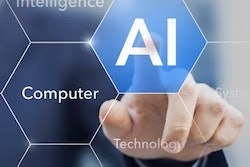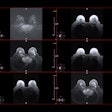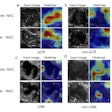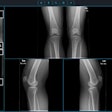Young people are optimistic about the use of AI in medicine, including in radiology, according to survey findings published in European Radiology.
Researchers led by Dr. Susan Shelmerdine, PhD, consultant academic paediatric radiologist at Great Ormond Street Hospital and associate professor at the Great Ormond Street UCL Institute of Child Health, found that young people, ranging from children to adults in their 20s, feel that AI should be integrated into modern healthcare. However, they indicated a preference for human oversight and accuracy of imaging findings over speed.
“They really liked the human touch, empathy, and reassurance and they really didn’t want that taken away by AI,” Shelmerdine told AuntMinnieEurope.com. “But they did want it to empower healthcare staff to help them make better decisions for their own care.”
While AI tools are becoming more available in modern clinical settings, radiologists have been split on their integration into imaging workflows. Previous survey studies have shown that while radiologists believe AI can help lessen the burden on workloads, they are also concerned about its accuracy and job security.
However, the researchers pointed out that less attention has been paid to AI applications for children and young people. Shelmerdine said that excluding younger people from the conversation could lead to them being skeptical toward AI as the technology continues to grow in use.
“We live in the digital age right now where everybody is talking about AI and digital technology,” she said. “These children do have opinions, fears, and worries on how it’s going to impact their future lives. I think involving them and giving them some permission to shape the future … means that we’re buying into developing a future that’s relevant for them and one they want to be a part of.”
The researchers found that the participants had positive thoughts about AI’s use in medicine. These included the following data points:
- 71.3% agreed or strongly agreed that they wanted to know the accuracy of an AI tool that was being used.
- 66.1% agreed or strongly agreed that accuracy was more important than speed.
- 64.3% agreed or strongly agreed that AI should be used with human oversight.
- 42.7% felt AI would be more accurate at finding problems on bone x-rays than humans.
- 85.7% of respondents who had sustained a missed fracture strongly agreed that AI would be more accurate at finding problems on bone x-rays than humans.
Shelmerdine said that it’s encouraging to see that younger people are showing awareness of AI’s use, including its potential misuse, as well as being open to having a broader conversation with older adults regarding the technology’s use in medicine. She added that this interest among younger generations could lead to more investment in the future.
“I didn’t think children would think that deeply about this [consent and informed decisions], but some raised comments about this,” Shelmerdine said. “I thought that was really interesting and insightful.”
The study authors called for further research to investigate some aspects covered by their survey, such as ethical implications and accountability, from a wider population of respondents. They added that in-depth, subject-specific surveys could also be beneficial.
Shelmerdine told AuntMinnieEurope.com that the team has completed a follow-up study that will be published “soon,” exploring parental and/or guardian views on AI in radiology and medicine and comparing these with younger people’s views.
She added that the researchers are working with AI models to improve accuracy of skeletal surveys, as well as vision language models for clinicians to interact with images through chatbots.
The full study results can be found here.
Our interview with Dr. Susan Shelmerdine, PhD, is also available as a podcast.



















